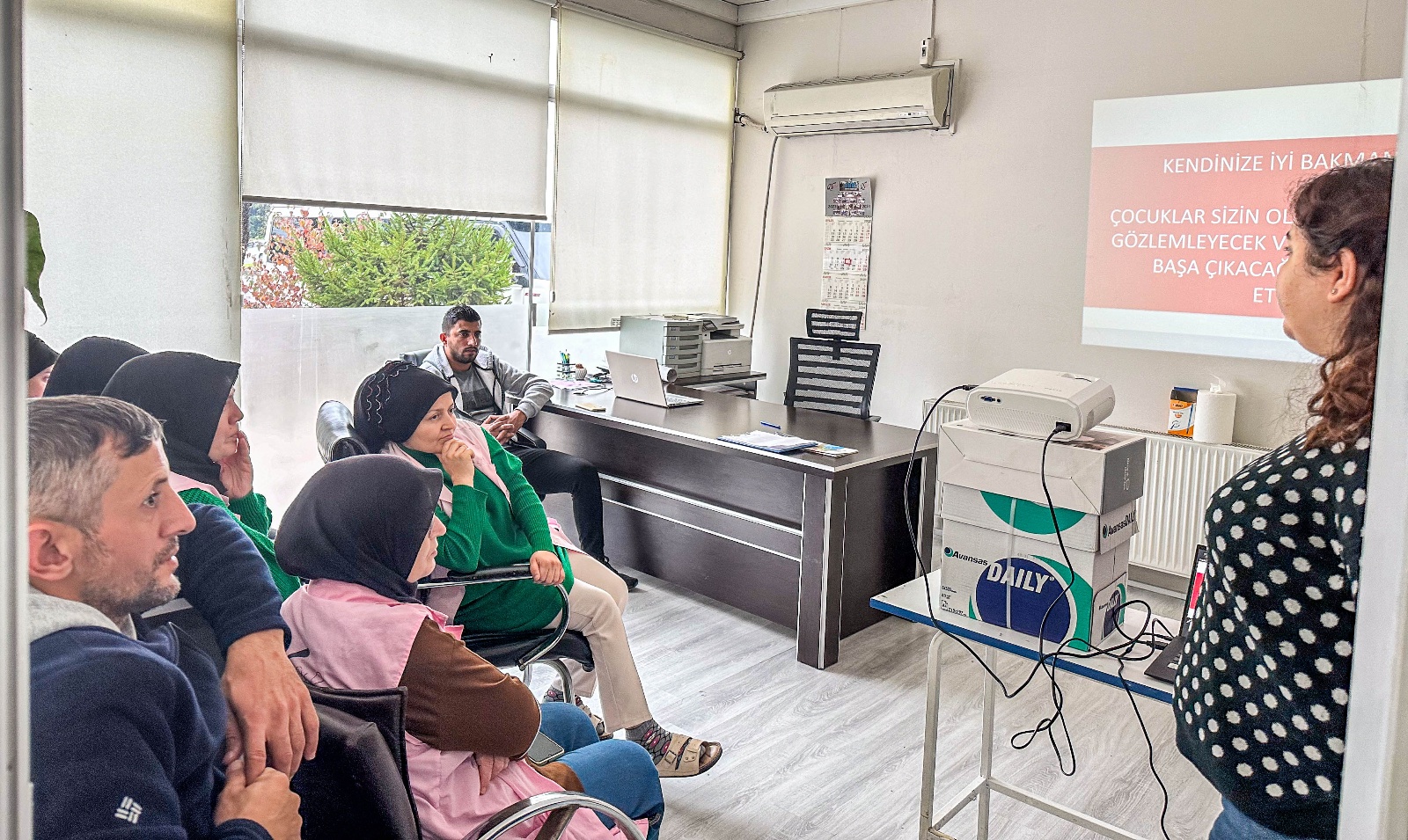

This week marks the one-year anniversary of the earthquake that struck southern and central Türkiye, and northern and western Syria. Twelve months on, people in the affected areas are still reeling from the loss and devastation. A less visible, but nonetheless, severe impact has been the psychological scars and trauma still affecting children and families today.

Workers also spoke of children starting to wet the bed – a common symptom of post-traumatic stress disorder (PTSD). Others mentioned how unfiltered social media images aggravated the trauma further.
To offer much-needed support in the earthquake’s aftermath, The Centre and the Otto Group engaged suppliers in the affected regions to raise awareness of earthquake preparedness and to provide training to parent workers to ease the psychological impact that their children may have experienced.
At the time, the Otto Group was working with The Centre to implement a WeCare Family-Friendly Workplaces programme in supplier factories in Bangladesh and Türkiye. After the earthquake hit, it became clear that the WeCare programme presented a good opportunity to provide meaningful assistance to workers and their families.
The Centre subsequently developed a specialised training programme to give parents tools to support their children in dealing with the psychological impact of the disaster. The training was rolled out by The Centre in two affected factories in Türkiye. In addition to covering earthquake-specific content, the training also covered more general topics that can support and guide parents in everyday life, including techniques for understanding their children better, effective communication and alternative communication methods and how to teach children to cope with distress. One of the aims behind the design of this training was to ensure its relevance and applicability in a wide range of scenarios – and not just as an immediate response to this particular earthquake.
After the training sessions, 71% of participating parents agreed that their current parenting style needed to change, and 100% of participants felt confident that they could improve their communication with their children.
In total, two factories in Türkiye took part in various tailored activities as part of the efforts to address the psychological impact of the disaster on workers. These also included psychological counselling delivered by two volunteer psychologists and counsellors over three group therapy sessions, as well as an earthquake preparedness and response Training of Trainers programme developed and delivered by the Turkey Earthquake Foundation.

A year may have passed, but the psychological scars have far from healed. By understanding the needs of workers and investing in customised interventions, businesses can be a powerful force of good in times of need.
2025/10/23
Call for Volunteers!By using this website, you agree to our use of cookies. We use cookies to provide you with a great experience and to help our website run effectively.